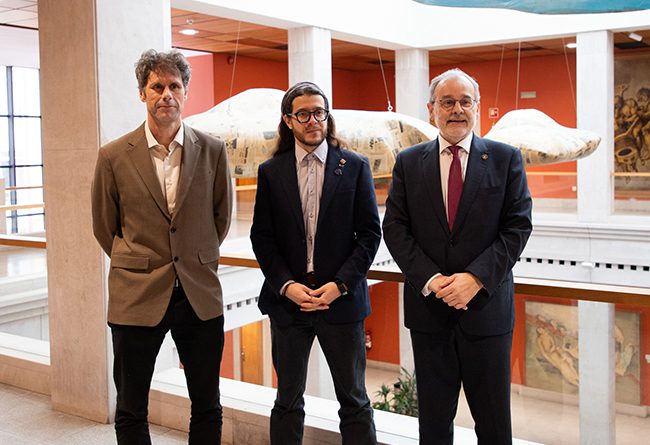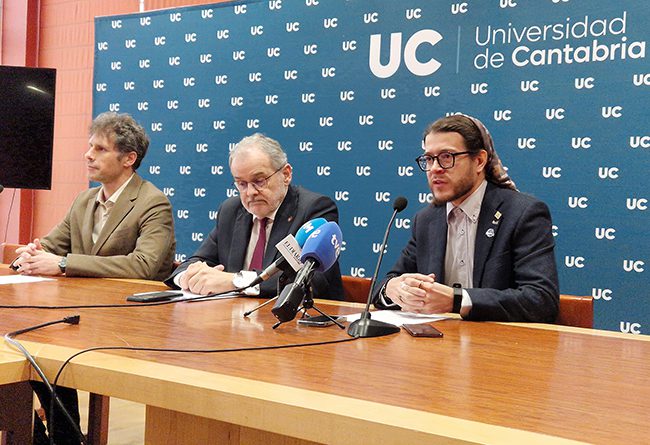This is the fifth ERC-funded project carried out at this Spanish university
The Italian researcher Leonardo Scarabelli will join the University of Cantabria (Spain) in the coming months to carry out his Nanogrowdirect project for 60 months thanks to more than two million euros in funding from the Starting Grant call of the European Research Council (ERC).
This is the fifth ERC grant awarded to a researcher from the University of Cantabria, and Rector Ángel Pazos highlighted the “significant success” of this university in attracting this type of European calls. “In addition, within the area of Physical Sciences and Engineering, we are the only Spanish university that has obtained an ERC Starting Grant,” added Pazos.
The Vice-Rector for Research at the University of Cantabria, Carlos Beltrán, emphasised the achievements obtained by Leonardo Scarabelli, including “the first position, among the 52 excellent candidates” in the most recent call of the Ramón y Cajal programme of the State Research Agency in Spain, through which he will be hired by University of Cantabria.
Scarabelli and the Nanogrowdirect project
Scarabelli, who holds a PhD in Chemistry from the University of Vigo (Spain), has developed his scientific career at the Centre for Cooperative Research in Biomaterials. After working as a postdoctoral researcher at the University of California, Los Angeles, he started his independent academic career at the Institute of Materials Science of Barcelona.
Dr. Scarabelli will join the Department of Chemistry and Process & Resource Engineering at the University of Cantabria and will have his laboratory at the School of Industrial and Telecommunication Engineering to develop his project Nanogrowdirect: Nanoparticles in Situ Surface Growth for Direct Fabrication of Functional Patterned Nanomaterials. It aims to develop new synthetic protocols characterised by greater control over the morphology, size, and composition of nanostructures. Scarabelli explained that “the problem the scientific community has with nanoparticles is that, in order to be applied to modern life, they have to be integrated into a device, into surfaces or into sensors, and this step presents some difficulties.” With the Nanogrowdirect project, he will try to “solve these problems by presenting a completely different and novel and innovative approach in which the nanoparticles are not prepared, synthesised in solution, but directly on the substrate, the material of interest.” This solution “has been proposed and tried several times over the years, but never successfully,” added Scarabelli.
The University of Cantabria has received, with this kind of ERC grants, a total of more than 9.5 million euros. Leonardo Scarabelli’s is the best funded to date, with 2.125 million euros.







